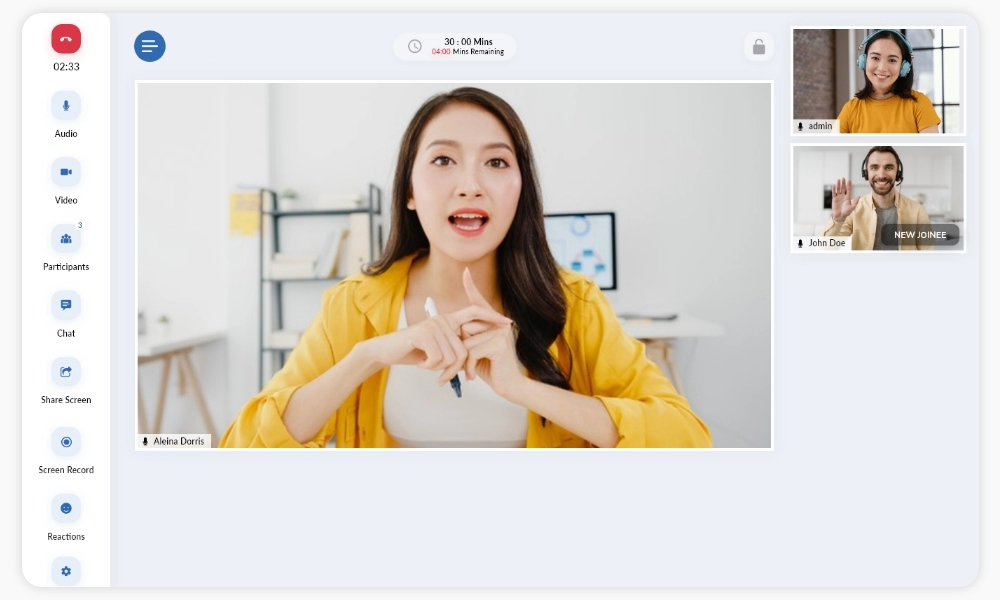As a fitness coach or gym owner, you know that managing clients and keeping track of their progress can be a daunting task. A CRM (Customer Relationship Management) system can help simplify the process and make your business more efficient. But what features should a CRM for coaches really include?
In this article, we will take a closer look at what a CRM is and what modules are essential for coaches, why they should adopt a CRM, and what long-term benefits it can offer.
At its core, a CRM is a software solution that enables businesses to manage and analyze their interactions with customers as well as potential customers. It typically includes a database of customer information, tools for communication and outreach, as well as analytics and reporting capabilities. In the context of fitness coaching, a CRM can help coaches organize client information, automate routine tasks, and monitor client progress.
All-in-one CRMs like Hubspot have emerged as a trend, offering a suite of tools that cover the entire customer journey, from marketing to sales to customer service. By building their own CRM rather than relying on third-party apps like Salesforce does, they have been able to create a more cohesive and user-friendly experience.
This trend is also taking hold in the fitness industry, with MevoLife offering a CRM solution that includes a variety of modules designed specifically for coaches.
A CRM for coaches should include modules that address the specific needs of fitness businesses. Here are five modules that are essential for coaches:
This module is designed to help coaches attract new clients and manage their marketing efforts effectively. It includes the following features:
Website Builder: A tool that enables coaches to create a professional-looking website without needing any coding skills. It should be user-friendly and provide templates that are easy to customize.
Sales Automation: A tool that automates the sales process by sending out emails, text messages, and reminders to potential clients. It should also track the progress of leads and analyze data to identify trends and optimize campaigns.
Marketing Manager: A tool that helps coaches plan and execute marketing campaigns, including email marketing, social media, and advertising. It should provide insights into the effectiveness of each campaign and help coaches adjust their strategies accordingly.
White-label App: A tool that enables coaches to create their own branded app, which clients can download to access their coaching services. It should be customizable and provide a seamless user experience.
This module is designed to help coaches stay organized and monitor client progress. It includes the following features:
Client Management System: A tool that enables coaches to keep track of client information, including contact details, and fitness goals. It should be easy to use and provide a dashboard that displays relevant information at a glance.
Progress Tracking: A tool that enables coaches to track client progress over time, including changes in weight, body mass index, and strength. It should provide visual representations of data and enable coaches to set goals and milestones.
Program Builder: A tool that enables coaches to create customized training programs for their clients. It should be flexible and allow for adjustments based on client feedback and progress.
This module is designed to help coaches offer live coaching services and manage scheduling. It includes the following features:
Video Coaching: A tool that enables coaches to offer one-on-one coaching sessions via video call. It should be user-friendly and provide high-quality video and audio.
Group Classes: A tool that enables coaches to offer group fitness classes online. It should be easy to use and provide features such as chat, screen sharing, and recording.
Booking Management: A tool that enables coaches to manage their schedule and accept bookings from clients. It should be integrated with other modules, such as the client management system, and provide automated reminders and confirmations.
This module is designed to help coaches manage financial transactions and plan for the future. It includes the following features:
Payments Manager: A tool that enables coaches to accept payments from clients, including recurring payments and one-time payments. It should be secure and integrate with popular payment gateways.
Billing Manager: A tool that enables coaches to generate invoices and manage billing cycles. It should be customizable and provide automated reminders for overdue payments.
Business Planner: A tool that enables coaches to plan and forecast their finances, including revenue, expenses, and cash flow. It should provide insights into key financial metrics and enable coaches to make data-driven decisions.
This module is designed to help coaches manage their staff and delegate tasks more effectively. It includes the following features:
Team Management System: A tool that enables coaches to manage their team members, including coaches, trainers, and administrative staff. It should provide role-based access and enable coaches to delegate tasks and responsibilities.
Task Manager: A tool that enables coaches to create and assign tasks to team members. It should provide automated reminders and enable team members to track their progress.
Performance Analytics: A tool that enables coaches to track the performance of their team members, including metrics such as productivity, efficiency, and customer satisfaction. It should provide insights into areas for improvement and enable coaches to provide feedback and coaching.
The benefits of adopting a CRM are numerous. It can help coaches save time by automating routine tasks and streamlining workflows. It can also improve communication and collaboration among team members, leading to a more efficient and effective business. Additionally, a CRM can help coaches better understand their clients and tailor their coaching services to meet their needs.
As technology continues to evolve, a CRM for coaches will likely become even more sophisticated. Machine learning and AI could be integrated to offer more personalized coaching services, and virtual and augmented reality could be used to enhance the client experience. The key will be to remain flexible and adaptable to new technologies and trends.
Adopting a coaching CRM can have a significant impact on the client experience. By streamlining workflows and automating routine tasks, coaches can focus more on providing quality coaching services to their clients. Additionally, a CRM can help coaches offer more personalized coaching services by providing insights into client behavior and preferences.
Conclusion
In conclusion, a CRM for coaches needs to be more than just a traditional CRM. It should include a suite of tools designed specifically for the fitness industry and be flexible and adaptable to new technologies and trends.
MevoLife is one such solution that offers a comprehensive suite of modules that can help coaches manage their business more effectively. Try it for free and see for yourself how it can benefit your coaching business.




